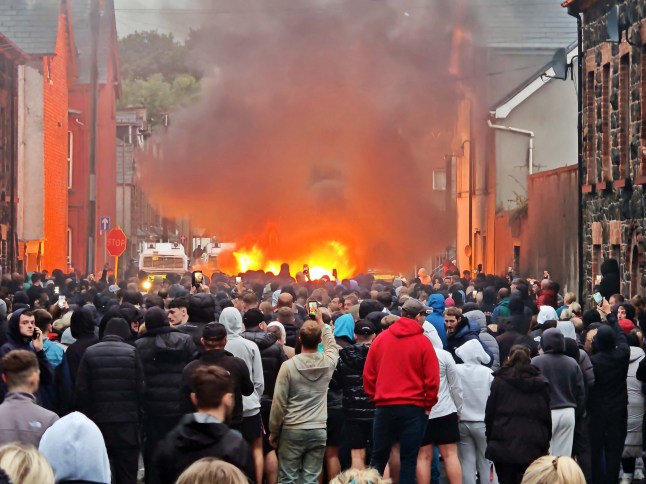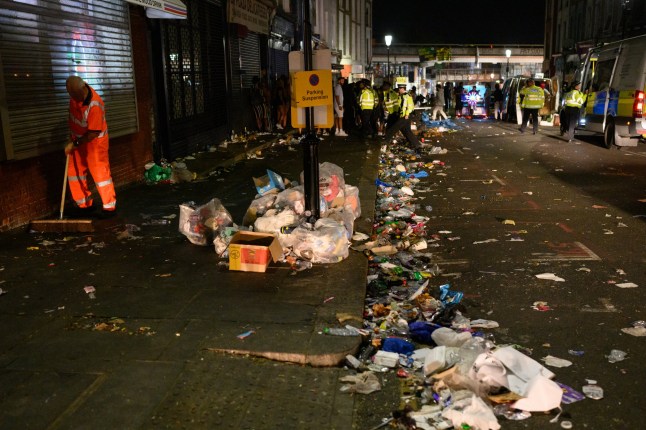
It’s nearing midnight and work is fully underway to clear the 330 tonnes of rubbish left behind on the streets of Notting Hill Carnival.
This year’s event, dedicated to celebrating Caribbean culture in west London, appears to be a success. The Met Police described it as the most peaceful in years, and the final stragglers are in good spirits as Metro walks past.
But as the music dies down and tents and stalls are packed away, there is no denying these quintessentially London streets are hidden beneath the sea of food wrappers, beer cans and gas cannisters.
Where does one even start to clear the mountains of rubbish away? Well as dawn breaks, most of it is gone.
‘This is the biggest waste operation in Europe,’ Gary O’Hagan, regional manager at Suez – the company in charge of the clean-up – told Metro.
He added: ‘It is not a contained environment like a festival, this is on open residential streets, making our job much, much harder. We start planning what to do in April.
‘But we have used the same system for years, and we know what we are doing.’
‘This is the biggest waste operation in Europe’
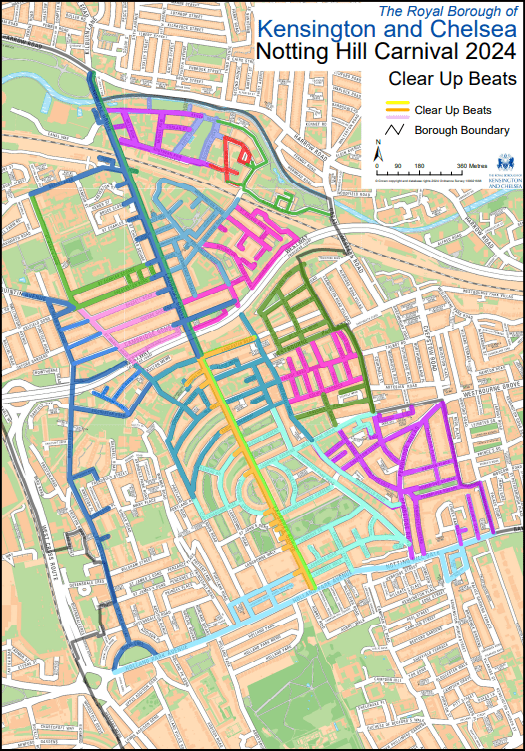
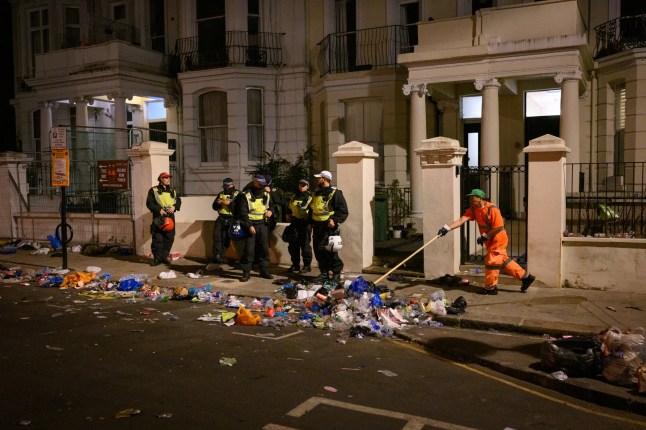
Around £120,000 has been spent this year on collecting rubbish and scrubbing down the streets after carnival, Gary revealed.
Some 330 tonnes of rubbish is expected to be picked up, with two-thirds of that total found on the final Monday night.
Walking around the streets not yet touched by the team, the smell of urine and remains of sugary alcohol is palpable. It is hard not to scrunch your nose at the piles as high as post boxes covered in mysterious liquids.
Latest London news
But this is no issue for the 200 or so workers out collecting it.
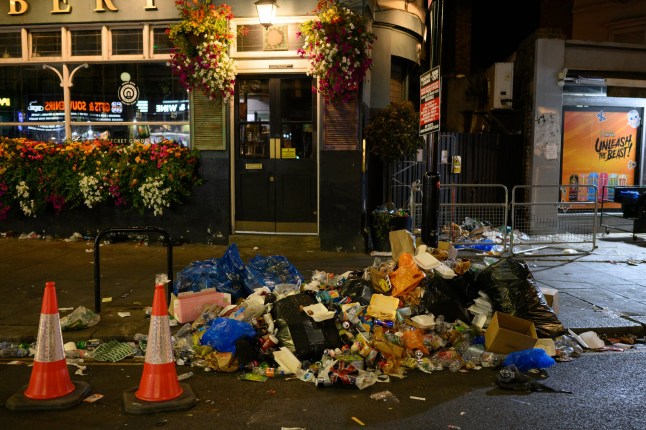
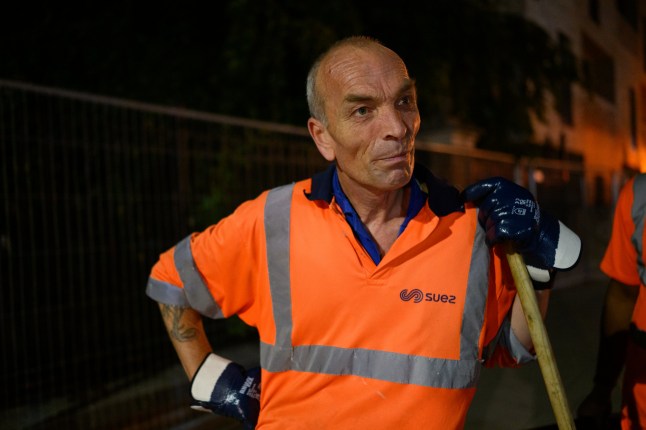
The work is very manual, and the way the rubbish is physically cleared and removed from the area has not changed much over the last 30 years
Mark Collison, who has worked at the carnival for 35 years, said although it is the busiest shift of the year, it is no harder than any others.
He told Metro: ‘The best bit about carnival is I have found the odd £5 note amongst the piles of rubbish.
‘But everyone just gets on with it. One person sweeps the rubbish into piles, and someone follows with a scooper, and into the lorry it goes.’
‘We have found around 5,000 nitrous oxide cannisters’
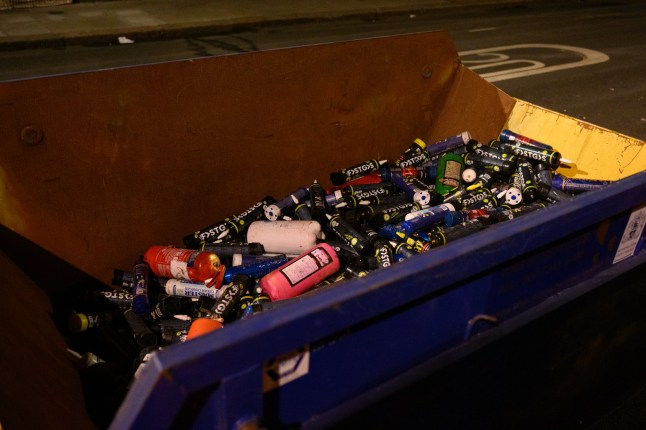
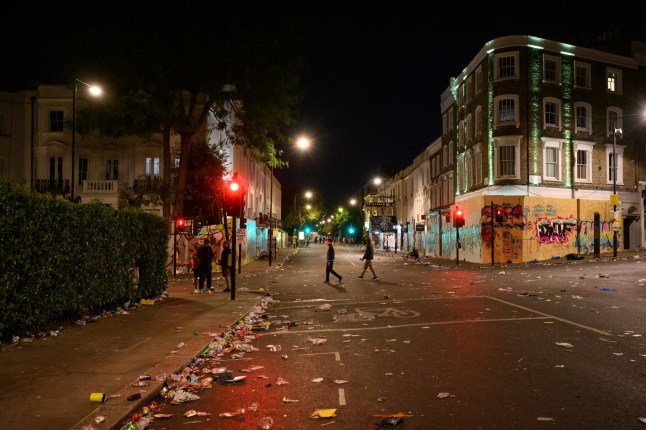
But one item of rubbish seems to be appearing more than most – gas cannisters.
‘On average, we find about 5,000 nitrous oxide cannisters,’ Gary, who has worked on clearing the carnival for 25 years, said.
It can be harder to dispose of these, as throwing them in the regular rubbish trucks is an explosion risk.
Memphis Reid, who has worked cleaning up the carnival for three years, said: ‘We just have to put them to the side, but there are a lot of them.
‘They get picked up separately but they can fill about one or two skips.’
A few bits of other dangerous debris is found and cleared away first, which can include anything from bricks to large planks of wood.
Urine in residents’ basements
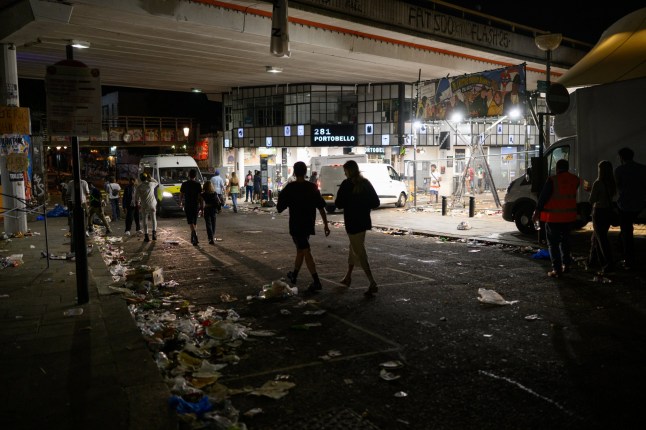
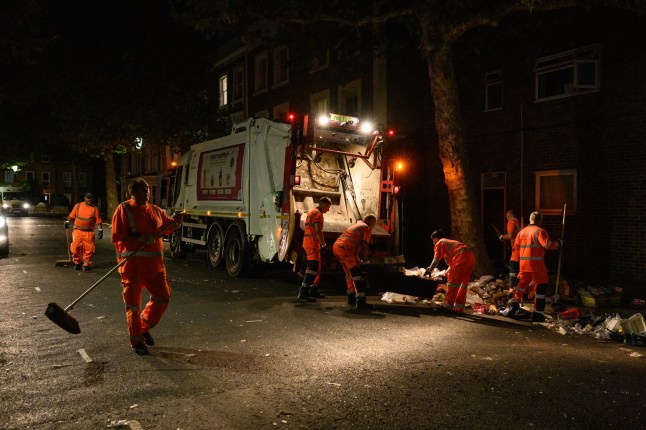
Despite the streets appearing spotless just eight hours after Notting Hill Carnival ended for another year, cleaning tasks will take another few weeks to fully complete.
Suez offers a service to homeowners whose basements need cleaning after the carnival, due to rubbish and human waste somehow finding its way inside.
‘A lot of people who own basements find it becomes a bit soaked with urine,’ Gary said.
‘But we help to clean that for them – free of charge.’
The sheer level of graffiti will also take weeks to clear, with specialist teams needed to scrub down any paint remaining on properties.
Can the festival tidy up more?
Is there anything that can be done to help minimise the amount of rubbish?
The carnival has no designated bins – but that is exactly what the waste operators prefer.
Gary said: ‘It would be a nightmare having to go round and empty the bins due to the sheer volume of people.
‘We would rather it just be on the streets, because we know when and how it will be cleared. Our system is tried and tested – and it works.’
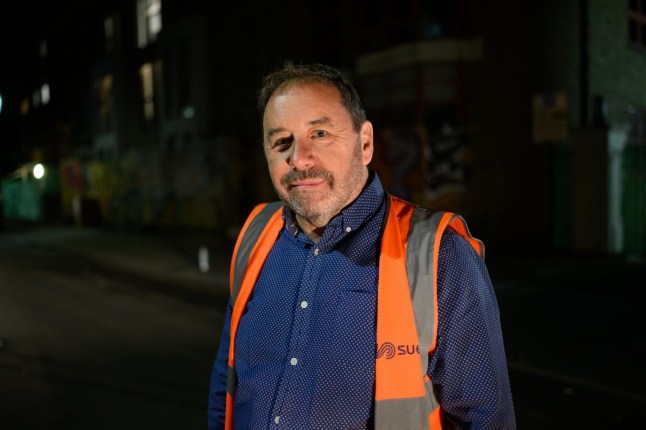
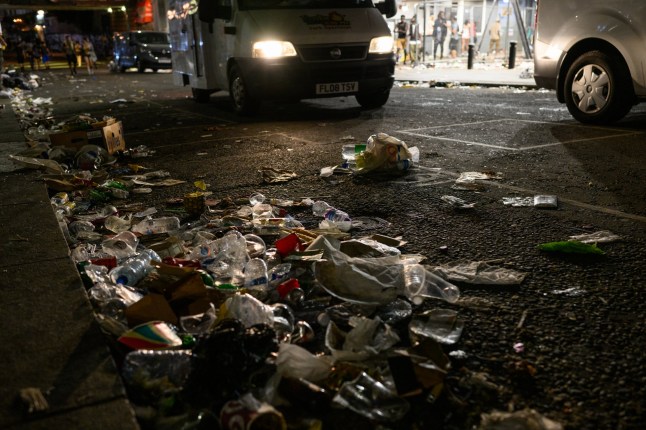
The only significant change over the last three decades is having more of the rubbish sorted through, with about 20% now ending up being recycled.
Metro has contacted Notting Hill Carnival for comment.
Cllr Johnny Thalassites, lead member for environment and planning at Kensington and Chelsea Council, said: ‘Our communities rightly expect their streets to be back to normal and ready for business by Tuesday morning after Carnival, and we’re very proud to deliver that year in, year out.
‘It’s a major operation and I am in awe of the hard-working men and women in our waste crews who work tirelessly through the night to collect the rubbish on Sunday and Monday.’
Get in touch with our news team by emailing us at webnews@metro.co.uk.
For more stories like this, check our news page.


